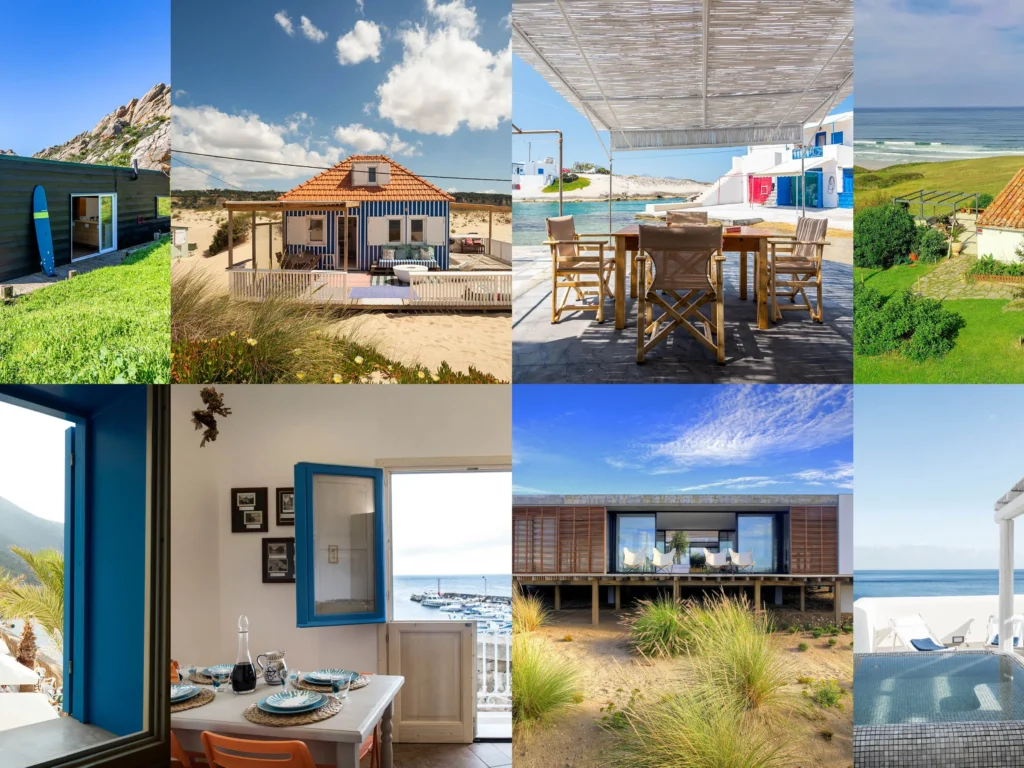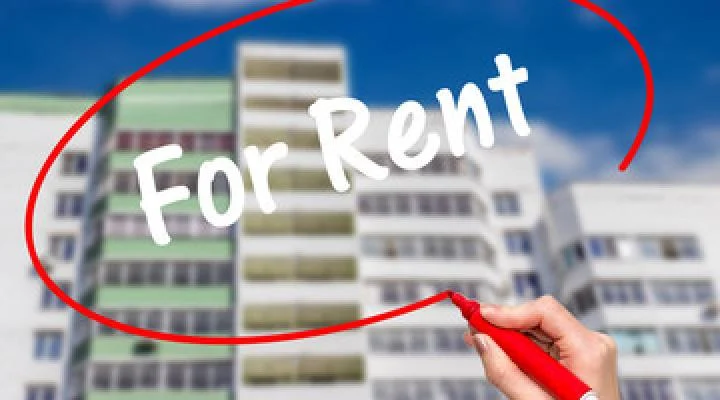Rent a Property in Spain
Are you looking to rent a property in Spain? Whether it’s for a long-term stay, a cozy 3-month winter getaway, or to immerse yourself in the Spanish lifestyle, finding the perfect rental is essential.

Navigating the ins and outs of Spanish rental contracts can seem daunting, but fear not! We’re here to guide you through the process step by step. From understanding rental agreements to discovering the best rental options in Spain, we’ve got you covered. Let’s dive in and make your rental experience in Spain a smooth and enjoyable one.
Rent a Property in Spain: Your Guide to spain long term rentals
Renting a property long-term or for a winter stay in Spain can be a rewarding experience. It provides you with the opportunity to immerse yourself in Spanish culture and lifestyle.
By understanding the rental contract, finding the right property, considering seasonal rentals, and navigating the rental market effectively, you can make informed decisions and enjoy your time in Spain with peace of mind.
Understanding spain long term rentals in Spain
Renting a property in Spain for a long-term period typically refers to leases that last for a year or more. This type of rental arrangement offers stability and is ideal for individuals or families looking to settle in Spain for an extended period.
spain long term rentals are commonly chosen by expatriates, retirees, and those who want to immerse themselves in Spanish culture without the commitment of property ownership.
Key Aspects of a Spanish Rental Contract
When you decide to rent a property long-term in Spain, you will need to sign a rental contract, which is a legally binding agreement between you (the tenant) and the landlord. This contract outlines various important details such as:
Finding the Right Property
Finding a suitable spain long term rental property in Spain involves several steps:
- Research and Listings: Begin by researching online listings on real estate websites, local classifieds, or through real estate agents. Listings will provide details such as location, size, amenities, and rental price.
- Contacting Landlords or Agents: Once you identify potential properties, contact landlords or real estate agents to schedule viewings. This allows you to see the property in person and ask any questions about the rental terms and conditions.
- Visiting Potential Homes: Visit the properties in person to assess their condition, neighborhood, and suitability for your needs. Consider factors such as proximity to amenities, public transportation, schools (if applicable), and your workplace or desired areas of interest.
- Negotiating Terms: If you find a property that meets your criteria, negotiate the terms of the lease with the landlord or agent. This may include discussing the rent amount, duration of the lease, including amenities, and any specific conditions you may have.
Considerations for 3-Month Winter Rentals in Spain
For shorter stays, such as a 3-month winter rental in Spain, the process is similar but with a focus on temporary accommodation. Many property owners offer seasonal rentals during the winter months to accommodate tourists or individuals seeking a temporary escape from colder climates. Considerations for winter rentals include:
- Seasonal Availability: Ensure that the property is available during the specific months you plan to stay, typically from December to February or March.
- Utility and Maintenance Inclusions: Clarify what utilities (electricity, water, internet) are included in the rental price and whether maintenance services (e.g., cleaning, snow removal) are provided.
- Flexibility in Terms: Discuss the flexibility of the rental terms, including the possibility of extending your stay if desired or necessary.
Navigating the Rental Market
Navigating the rental market in Spain requires understanding local rental laws and regulations, as well as cultural norms regarding renting. Here are some tips for navigating the rental market effectively:
- Legal Requirements: Familiarize yourself with Spanish rental laws and regulations to understand your rights and obligations as a tenant.
- Local Customs: Understand cultural norms related to renting, such as typical rental practices, negotiation etiquette, and tenant-landlord relationships.
- Real Estate Agents: Consider hiring a local real estate agent who specializes in rental properties. They can provide valuable insights, assist with negotiations, and help navigate the rental process.
- Documentation and Paperwork: Ensure all necessary documentation and paperwork are completed accurately and in accordance with Spanish legal requirements. This includes the rental contract, proof of income or financial stability, and identification documents.
3-Month Winter Rentals in Spain Made Easy
If you’re looking for a short-term escape to Spain during the winter months, finding a rental property for three months can be straightforward and enjoyable.

Availability and Timing
During the winter season, many property owners in Spain offer their homes for short-term rentals, typically from December through February or March. It’s essential to start your search early to secure the best options.
Understanding Rental Terms
When considering a 3-month winter rental in Spain, it’s crucial to understand the rental terms upfront. This includes:
- Rental Price: Clarify the total rent for the three months and what it includes (utilities, internet, etc.).
- Deposit: Know the amount of the security deposit required and the conditions for its return.
- Duration: Confirm the exact dates of the rental period and any flexibility in extending your stay if needed.
Choosing the Right Property
Selecting the right property for your winter stay involves considering the following:
- Location: Choose a location that suits your preferences, whether you prefer a bustling city, a coastal retreat, or a tranquil countryside setting.
- Amenities: Evaluate the amenities offered, such as heating (important in winter), kitchen facilities, and proximity to local attractions and services.
- Reviews and Recommendations: Read reviews from previous renters or ask for recommendations to ensure the property meets your expectations.
Booking and Confirmation
Once you’ve found the ideal 3-month winter rental in Spain:
- Negotiate Terms: Discuss any specific requirements or preferences with the landlord or property manager.
- Sign the Agreement: Review and sign the rental agreement, ensuring all terms are clearly stated and understood.
- Payment: Arrange for payment of rent and deposit as per the agreed terms to secure your reservation.
Enjoying Your Winter Stay in Spain
With your rental secured, you can look forward to enjoying Spain’s winter delights. Explore local cuisine, cultural attractions, and seasonal festivities to make the most of your temporary home away from home.
Spanish Rental Contracts Simplified: Your Path to Renting in Spain
Renting a property in Spain involves signing a rental contract, a legal agreement that sets out the terms between you (the tenant) and the landlord. This contract covers several key aspects that are crucial for a clear understanding before you move forward.
Introduction to Spanish Rental Contracts
A Spanish rental contract is a formal agreement that defines the terms of your tenancy. It specifies important details such as the duration of the rental period, the amount of rent to be paid, and the responsibilities of both parties involved.
Duration of the Rental Contract
The duration of the contract indicates how long you can occupy the property. For spain long term rentals in Spain, this typically spans a year or more. Short-term rentals, such as a 3-month winter rental in Spain, have a specific end date.
Rent Payment Details
The contract specifies the amount of rent you need to pay and how often it should be paid (monthly, quarterly). It also outlines the accepted methods of payment, such as bank transfer or cash.
Security Deposit Requirements
Landlords usually require a security deposit before moving in. This deposit covers any damages to the property or unpaid rent. The contract will state the amount of the deposit and the conditions under which it will be refunded at the end of the tenancy.
Maintenance Responsibilities
The contract clarifies who is responsible for property maintenance and repairs. Major repairs and structural upkeep are typically the landlord’s responsibility, while tenants are expected to handle day-to-day maintenance and minor repairs.
Legal Framework and Tenant Rights
Spanish rental laws protect both tenants and landlords. These laws govern aspects like rent increases, eviction procedures, and tenant rights regarding privacy and property conditions. Understanding these laws ensures a fair and lawful tenancy.
Additional charges
In addition to rent and security deposits, tenants may be responsible for other charges, such as utilities (water, electricity) and community fees for shared amenities in apartment complexes or residential communities.
Termination Conditions
The contract outlines the conditions under which the rental agreement can be terminated. This includes providing notice to terminate the lease and any penalties for breaking the contract early.
Finding the Right Rental Property in Spain
Choosing the right rental property involves considering factors such as location, budget, and amenities. Whether you’re looking for a long-term residence or a short-term stay, like a 3-month winter rental in Spain, these considerations will help you find a property that meets your needs.
Understanding Spanish rental contracts is essential for a smooth and successful renting experience in Spain. Whether you’re planning a long-term stay or a temporary visit, familiarizing yourself with the contract details, your rights as a tenant, and the legal framework will empower you to make informed decisions and enjoy your time in Spain comfortably.
Rent in Spain: Tips for Finding Your Perfect Home
When renting a property in Spain, start by defining your requirements clearly. Consider whether you need a spain long term rental or a shorter 3-month winter stay. Determine the number of bedrooms, desired location, amenities like proximity to public transport or shops, and any specific features such as a garden or parking.

Researching Locations
Explore different regions and cities in Spain that match your preferences and lifestyle. Coastal areas like Costa del Sol or Costa Brava offer beautiful beaches. At the same time, cities like Madrid and Barcelona provide vibrant urban experiences—research local rental markets to understand pricing trends and availability.
Navigating Rental Contracts
Understanding Spanish rental contracts is crucial. Familiarize yourself with typical terms such as lease duration, rent payment schedules, deposit requirements, and responsibilities for utilities and maintenance. Ensure clarity on any additional fees or clauses related to pets, smoking, or property alterations.
Connecting with Local Agents
Engage with local real estate agents who specialize in rentals. They can provide insights into the market, show you available properties, and assist in negotiating terms with landlords. Agents also facilitate communication, ensuring that all contractual details are transparent and understood.
Visiting Properties
Arrange viewings of potential rental properties in Spain to get a firsthand feel for each place. Evaluate factors like natural light, noise levels, condition of furnishings and appliances, and overall comfort. Take notes and ask questions about the neighborhood, local amenities, and commuting options.
Finalizing Your Decision
Once you’ve found a property that meets your criteria, review the rental agreement thoroughly before signing. Clarify any doubts with the landlord or agent and ensure that all agreed-upon terms are documented. Prepare necessary documents such as identification, proof of income, and references to streamline the rental process.
By following these tips, you can effectively navigate the process of renting a property in Spain and find the perfect home for your needs, whether for a long-term stay or a three-month winter rental.
Explore spain long term rentals in Spain: Everything You Need to Know
spain long term rentals in Spain refer to lease agreements typically extending beyond 12 months. They provide stability and predictability in housing costs, making them ideal for individuals or families seeking extended stays, whether for work, retirement, or leisure.
Choosing a spain long term rental allows tenants to immerse themselves in local communities and experience daily life more authentically compared to short-term accommodations.
Finding Your Ideal Property:
To find the perfect spain long term rental in Spain, start by researching available properties through online listings, local real estate agencies, or recommendations.
Consider factors such as location preferences (urban, coastal, rural), proximity to amenities (schools, shops, healthcare), and transportation options.
Size and amenities (such as furnished or unfurnished parking and outdoor space) should also align with your lifestyle needs and budget considerations.
Navigating Spanish Rental Contracts:
Spanish rental contracts are legally binding documents that outline crucial details such as the duration of the lease, monthly rent amount, deposit requirements, and responsibilities of both tenants and landlords.
It’s essential to review these terms thoroughly and ensure clarity on legal requirements, tenant rights, and obligations under Spanish rental laws.
Negotiating specific terms, such as maintenance responsibilities or rental adjustments, can sometimes be possible, depending on the agreement between parties.
Preparing for Your Stay:
Before finalizing your spain long term rental in Spain, gather necessary documentation, including a valid passport or identification, proof of income or financial stability, and possibly a Spanish NIE (Número de Identificación de Extranjero).
Once the property is chosen, complete the rental agreement process by paying any required deposits or fees and obtaining a signed contract copy. Understanding cultural differences and local customs can ease your transition and enhance your experience living in Spain.
Settling into Your New Home:
Upon arrival at your rented property, conduct a thorough inspection to note any existing damages or maintenance issues. Communicate these findings promptly to the landlord or property manager for resolution.
Arrange for essential utilities (electricity, water, gas) and services (internet, telephone) to be transferred to your name, ensuring you understand billing cycles and payment methods. Embrace the Spanish lifestyle by participating in community events, exploring local attractions, and connecting with neighbors to integrate seamlessly into your new environment.
Maintaining Your Rental:
Communicate openly with your landlord or property manager throughout your tenancy to address any maintenance issues promptly. Understand your responsibilities for routine upkeep and minor repairs within the property.
Ensure clarity on who is responsible for major repairs and renovations as per the terms of your rental contract. Plan for contract renewal or termination, adhering to notice periods and financial obligations to facilitate a smooth transition when the time comes.
Exploring spain long term rentals in Spain offers an opportunity to enjoy a stable, immersive experience in this culturally rich and diverse country. By understanding the rental process, securing the right property, and integrating into the local community, tenants can make the most of their long-term stay and create lasting memories in Spain.
Step-by-Step Guide to Renting in Spain
Renting a property in Spain involves thorough research, understanding rental contracts, budgeting effectively, negotiating terms, inspecting the property, settling in, and adapting to the local culture. By following this comprehensive guide, you can navigate the process confidently and enjoy your time living in Spain.

Finding Your Ideal Rental Property in Spain
Start by outlining what you need in a rental property. Consider factors such as location (city, neighborhood), type of property (apartment, house, villa), size, amenities (parking, outdoor space, furnished/unfurnished), and budget.
- Research Online: Use rental listing websites and real estate portals to search for available properties in your desired location. Websites like Idealista, Fotocasa, and Pisos.com are popular in Spain for rental listings.
- Contact Local Real Estate Agencies: Reach out to local real estate agencies (“inmobiliarias”) in the area you’re interested in. They often have access to listings that may not be advertised online.
- Consider Word of Mouth: Ask friends, colleagues, or expat communities for recommendations or leads on available rentals. Sometimes, the best deals are found through personal connections.
Understanding Spanish Rental Contracts
- Reviewing the Contract: Once you find a potential rental property, you’ll be presented with a rental contract (“contrato de arrendamiento”). Carefully review all terms and conditions outlined in the contract before signing.
- Key Terms to Understand: Pay attention to details such as the duration of the lease (usually one year or longer for spain long term rentals), monthly rent amount, payment schedule, utility responsibilities (sometimes included in rent, occasionally separate), security deposit amount and conditions for its return, and any special clauses (like pet policies or maintenance responsibilities).
- Legal Protection: Spanish rental contracts provide legal protections for both tenants and landlords. To avoid misunderstandings, ensure you understand your rights and obligations under Spanish rental law.
Budgeting for Your Rental in Spain
- Calculating Total Costs: Determine your total budget for renting by considering not only the monthly rent but also additional expenses such as utilities (electricity, water, internet), community fees (if applicable for apartments), and taxes.
- Research Local Costs: Research the cost of living in the area where you plan to rent. Costs can vary significantly between cities and regions in Spain. Knowing local prices for groceries, transportation, and other necessities helps you plan your budget more accurately.
Securing Your Rental
If you find a property you like, negotiate with the landlord or real estate agent on terms such as rent amount, duration of the lease, and included amenities. Be prepared to discuss the security deposit and payment schedule.
Once both parties agree on the terms, sign the rental contract. Ensure that any verbal agreements or amendments are included in the written contract to avoid future disputes.
Settling In and Navigating Local Services
- Get Connected: Upon moving in, set up essential services such as electricity, water, internet, and gas (if applicable). Contact local providers or use online platforms to compare options and choose the best services for your needs.
- Explore the Neighborhood: Familiarize yourself with the local area. Find nearby grocery stores, pharmacies, healthcare facilities, public transportation options, and any other services you may need regularly.
Adapting to Spanish Culture
Embrace the local culture by participating in community events, trying local cuisine, and learning about Spanish customs and traditions. Engaging with your neighbors and local community can enhance your experience living in Spain.
If you need to become fluent in Spanish, consider taking language classes or using language learning apps to improve your communication skills. Knowing some basic Spanish phrases can be immensely helpful in daily interactions.
Rent a Property in Spain: Your Ultimate Rental Guide
Renting a property in Spain offers an opportunity to immerse yourself in the country’s rich culture and diverse landscapes. Whether you’re seeking a long-term stay or planning a 3-month winter escape, this ultimate rental guide equips you with the knowledge and tools necessary to find and secure your ideal home in Spain.

Renting in Spain: A Brief Overview
Renting a property in Spain is a straightforward process that caters to various needs, whether you’re looking for a long-term residence or a short-term 3-month winter rental. Understanding the nuances of Spanish rental contracts is essential to ensure a smooth experience.
Types of Rentals Available
In Spain, you can find a wide range of rental options, from apartments in bustling cities to villas nestled in serene countryside. Each type of accommodation offers unique benefits suited to different preferences and lifestyles.
Spanish Rental Contracts Decoded
Navigating Spanish rental contracts might seem complex at first, but breaking down the key terms and conditions can clarify your rights and responsibilities as a tenant. Knowing what to expect in terms of deposits, lease duration, and maintenance obligations ensures transparency throughout your rental period.
Finding Your Ideal Rental Property
When searching for a rental in Spain, consider factors such as location, amenities, and budget. Whether you prefer the vibrant atmosphere of coastal towns or the tranquility of inland villages, there’s a perfect rental property waiting to meet your needs.
Tips for a Smooth Rental Experience
To ensure a hassle-free rental experience in Spain, it’s advisable to conduct thorough research, communicate clearly with landlords or property managers, and familiarize yourself with local rental laws. These proactive steps can help you avoid common pitfalls and enjoy your time in Spain to the fullest.
At Marfour, we understand the importance of finding the right place to call home in Spain. Our comprehensive guide provides invaluable insights and practical advice to help you navigate the rental market with confidence. Whether you’re relocating for work, planning a seasonal retreat, or exploring new horizons, let Marfour guide you towards a seamless rental experience in this captivating country.
FAQs (Frequently Asked Questions)
What are the typical rental costs in Spain?
Rental costs in Spain vary depending on location and property type. Generally, urban areas and popular tourist destinations command higher rents compared to rural areas. It’s advisable to research current market rates in your desired location.
Do I need a Spanish bank account to rent a property in Spain?
While having a Spanish bank account can simplify rental transactions, it’s optional. Many landlords accept international bank transfers for rent payments. However, local practices may vary, so it’s advisable to check with individual landlords or rental agencies.
What documents do I need to rent a property in Spain?
Typically, landlords require proof of identity (passport or ID card), proof of income (such as employment contracts or bank statements), and sometimes a reference from a previous landlord. Additionally, a valid residence or work permit may be required for non-EU citizens.
What is included in a Spanish rental contract?
Spanish rental contracts specify details such as the duration of the lease, rent amount and payment terms, responsibilities for utility bills and maintenance, and any additional clauses agreed upon by the landlord and tenant. It’s important to review these terms carefully before signing.
Can I terminate a rental contract early in Spain?
Early termination typically requires mutual agreement between the landlord and tenant or adherence to specified legal grounds for termination. Penalties or conditions for early termination may be outlined in the contract.
Conclusion
Renting a property in Spain offers a myriad of opportunities for long-term stays or short-term getaways, whether you’re exploring the vibrant cities, relaxing on the coast, or immersing yourself in the country’s rich culture.
By understanding Spanish rental contracts, navigating the rental market, and considering your preferences and budget, you can find the perfect place to call home. This guide equips you with essential knowledge and tips to ensure a smooth and enjoyable rental experience in Spain, allowing you to make the most of your time in this beautiful country.
Experts in Renting Property In Spain
Our English-speaking real estate lawyers in Madrid and Barcelona can assist you with renting property in Spain.
The process of renting property in Spain is not easy if you are not familiar with the language and Spanish rental law.
We can help you rent property in Spain.
Testimonials
With the help Marfour´s lawyer, I was able to solve all my doubts. Finally, they could prepare a contract for me in Spanish and English. They were very helpful and understandable with me.
![]()
![]()
Marfour can assist you with Renting a Property In Spain
Contact us, and Marfour International Law Firm will assist you in Renting a Property in Spain. One of our specialized English-speaking lawyers will contact you immediately. Do not hesitate to send us your enquiry.

